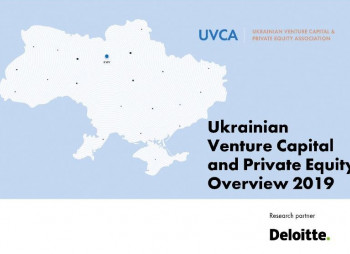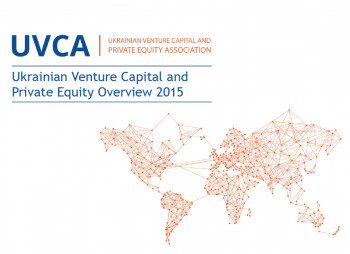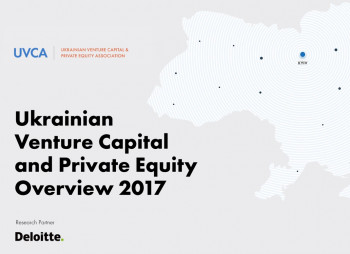As someone who loves food, wants to change the world, and believes that start-ups and early stage financiers can help drive much-needed change in our food industry, I keep tabs on investors working in the food and agriculture spaces. Here’s a quick list of groups working in the industry — and for startups, potential sources of equity financing.
Accelerators
What: Time-bound programs that typically offer mentorship, co-working space, and usually funding, often in the form of equity. The cash you’ll receive from these programs is usually not very substantial. If you’re truly fundraising, keep reading. Here are some of the incubators and accelerators that have popped up across the globe that are focused on food, beverage, consumer goods and/or agriculture. Check ’em out.
- Accel Foods— NYC
- Alpha Strauss— Israel
- Blue Ridge Food Ventures— Asheville, NC
- Distill Ventures— This is Diageo’s accelerator (i.e., the liquor magnate) and the cash investment they’re willing to make in your fledgling spirits business is pretty substantial – London
- Good Food Business Accelerator— focused on businesses supporting the Midwest foodshed – Chicago, IL
- Food Hatch— Naples, FL & NYC
- Food-X — international! – based out of NYC
- Fresh Startups— Toronto
- The NextFarm Accelerator— Martin, TN
- Now We’re Cookin’— incubator w/ commercial kitchen – Evanston, IL
- The Yield Lab– AgTech – St. Louis, MO
Angel Investors
What: Angels are individual investors who choose to invest their personal money. They often invest at the seed round.
Note: Some angel investors prefer debt-financing to equity financing. (And as a start-up, you might prefer that, too.) More on convertible notes later.
- Angel Food Network— no investments as of 2015 – Chicago
- Colorado Food Investments— sustainable food investments – Boulder, CO
- Hyde Park Angels— Chicago — they have a consumer group
- Food Angels— Food, Alcohol, CPG, Drink or Food-Tech Companies – NYC
- The Cascadia Foodshed Funding Project (CFFP)— Seattle
- Slow Money NYC— Food – NYC
- Sustainable Local Food Investment Group(SLoFIG) — Chicago
Equity Crowdfunding
Cash-for-perks: Crowdfunding is a way to take your fundraising efforts to the crowd. In exchange for some kind of perk (a shout out, early access to a new product, etc.), startups get cash from the crowd. See the list of crowdfunding platforms dedicated to food & beverage, consumer goods, and agriculture here.
Cash-for-equity: The other model for crowdfunding, which became a legal reality after the Title IV of the JOBS Act Jobs Act got the green light, is cash-for-equity. Investors may be angels or funds, which puts CrowdFunding (for equity) nicely between Accelerators & Venture Capital in terms of sources of equity. The platforms listed below curate deal flow for their investors, so you’ll have an additional round of selling to do just to get listed. From there, each investor makes their own decision on whether or not they’re interested in investing.
- AgFunder— AgTech – San Francisco
- CircleUp— Consumer Goods, including food & beverage – San Francisco
Venture Capital
What: VCs are institutional investors (i.e., individuals investing from a fund). Venture Capital firms usually invest at a slightly later stage than angels and at larger amounts, but these things are usually functions of their fund size and investment themes. Venture Capital funding is hard to get.
- Agri-Innovation Venture Capital Fund— Japan
- AgTech Innovation Fund— Davis, CA
- Armonia– regenerative farmland, brands & funds (focus on grass-fed beef) – Greenwich, CT
- Aqua Capital Management— water rights investment and management – Omaha, NE
- Aquacopia— Venture Capital for Aquaculture – NYC
- Aqua-Spark— Netherlands
- Arthur Ventures Growth Fund— focused on software, but sometimes makes ag software investments – Fargo, ND & Minneapolis
- Avrio Capital— “innovative food & agriculture companies” – Canada
- Better Food Ventures— Food/Tech – Menlo Park, CA
- Boulder Food Group (BFG)— Food & Beverage – Boulder, CO
- Bradmer Foods— Consulting & Investment Firm – Baltimore, MD
- Capitol Food Ventures— business advisory and investment firm for food & ag businesses – Washington DC
- Clearwell Group— Tampa, FL
- Cultivan Ventures— Carmel, IN
- Cultivan Sandbox— AgTech – Chicago
- Data Collective— focused on big data; has made several AgTech investments – SF
- Dom Capital Group— focused on restaurants & hospitality — Chicago
- Fair Food Fund— funds good food businesses – New England
- Farm2050— AgTech – CA
- Fresh Source Capital— sustainable food & agriculture – Cambridge, MA
- Fund the Food— student-led fund started by the Kirchner Private Capital Group, focused on food security — Ashville, AL
- Gastronome Ventures— Specialty Food – San Diego
- GreenSoil Investments— products and services focused on smart and efficient use of resources such as land and water – Israel
- Isocline Ventures— Wine & Spirits – Charleston, SC
- Kleiner Perkins Caufield & Byers Green Growth Fund— historically interested in CleanTech; venturing into AgTech now — CA
- Inventages— Life sciences, nutrition, and wellness – Bahamas, London, Hong Kong, Auckland
- Maumee Ventures— Ag innovation – Ohio
- New Ground Ventures— FoodTech, Branded Food & Beverage – Westport, CT
- NGEN Partners— NYC
- Salt Partners Group — Food & Beverage – SF
- Salt Venture Partners— FoodTech – Boston, San Francisco
- Seed to Growth (S2G) — Chicago
- SOS Ventures— NYC – runs the FoodXaccelerator and has made several investments in the food space
- SJF Ventures— AgTech – Durham, NYC, SF
- True North Venture Partners– Chicago
- Valley Oak Investments— Early-stage food, agriculture, and health & wellness companies – CA
- Village Capital— Also invests in ag, ag-tech, and aquaculture
Other VC Groups Making Occasional Food Investments:
Accel Partners, Andreessen Horowitz, Hospitality Capital (NYC), Maveron LLC, SV Angel, True Ventures, Obvious Collection, Revolution (Steve Case: Sweetgreen), Yellowstone Capital
Corporate Venture Capital
What: Corporate VCs are institutional investors in the sense that they’re investing out of a fund, but their investments are usually bankrolled by a parent corporation who wants to fund innovations in their industry (often because it gives them a line-of-sight into emerging trends and opportunities). Depending on the size of the fund and its strategy, these groups may have been formed as part of the firm’s M&A strategy.
- 7-Ventures— 711’s VC Fund
- 20 Million and Change— Patagonia’s clothing, food, water, energy, and waste fund — Ventura, CA
- Boulder Brands Investment Group— Boulder Brand’s early stage investment group; they’ve got an M&A group, too — Boulder, CO
- Dupont Ventures– Agriculture, etc.
- General Mills Ventures(for brands with revenues of $3MM or more)
- Mars Ventures
- Monsanto Growth Ventures– AgTech
Growth Equity
What: Growth Equity shops are institutional investors (i.e., individuals investing from a fund). Growth Equity firms invest at much later stages, and at much greater amounts, than VC firms. Conceptually, you might think of them as sitting between venture capital and private equity (see below), but growth equity is ultimately a segment of private equity. These investors prefer de-risked investments, invest when companies have tens of millions of dollars in revenues and/or EBITDA, and create value through profitable revenue growth. Hence, growth equity.
- 2x Consumer Products Growth Partners— Chicago
- Anterra Capital— Amsterdam
- Greenmont Capital Partners— Green Consumer Products – Boulder
- Pontifax— FoodTech, AgTech – Los Angeles
Private Equity
What: Private Equity shops are institutional investors (i.e., individuals investing from a fund) using a combination of equity and debt (also known as leverage). In the eighties, private equity transactions were known as leveraged buyouts, or LBOs. Like other investors, the size of private equity investments are typically a function of fund size and strategy, but these are late-stage buyouts. Turnarounds may or may not be involved.
- Arbor Investments— Food & Beverage — Chicago
- Altamont Capital Partners— San Francisco
- AGR Partners— evergreen fund focused on food & ag value chain – California
- Arlon Capital — middle-market food & agriculture – NYC
- Equilibrium Capital— recent ACM Permanent Crops Fund is focused on … permanent crops — SF & Oregon
- Farmland LP— buys conventional farmland, converts to organic — San Francisco
- Hancock Agricultural Investment Group— row & permanent cropland – Boston
- Homestead Capital— operating farmland – San Francisco
- JH Whitney & Co— invests in some consumer goods & restaurant groups – CT
- Investeco Sustainable Food Fund— Toronto, Canada
- Kainos Capital— Texas
- Kirchner Food Security Group– Agriculture – Ashville, AL
- Paine + Partners— Food & Agribusiness – Chicago, NY, CA
- Rabo Farm— Europe
- Retail & Restaurant Growth Capital Lp— just like it sounds, but they invest $1-3M along side other PE firms and try to add value through consulting services – Texas
- Rural America Fund— growing middle-market rural American companies, principally in agriculture or ag-related businesses – Chicago
- Sherbrooke Capital— branded consumer goods – MA
- Southern Pastures— pasture land – New Zealand
- Swander Pace Capital— consumer products – SF & NJ
- Winona Capital– some branded food products – Chicago
- VMG Partners— lower-middle market, branded consumer products – San Francisco, Los Angeles








